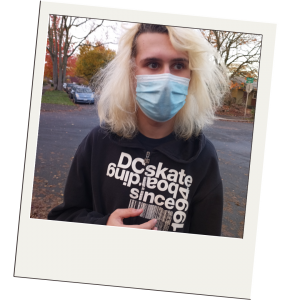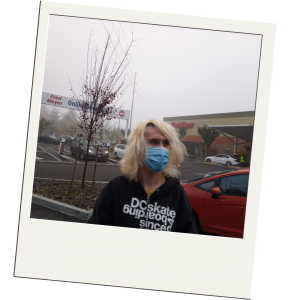 Heading into the last month of the most chaotic year of my lifetime, it’s a good time to focus our attention on the positive things coming ahead. First we have the holidays which will undoubtedly raise people’s spirits, but will also ignite emotions over COVID, resulting in more cases, and sadly – and unnecessarily – avoidable deaths. We will have to make some major adjustments in our lives to keep each other safe, but more importantly, we will have to protect people with disabilities from getting this virus, and when they do get sick, we will need to make sure they have the same access to treatment like non-disabled patients.
Heading into the last month of the most chaotic year of my lifetime, it’s a good time to focus our attention on the positive things coming ahead. First we have the holidays which will undoubtedly raise people’s spirits, but will also ignite emotions over COVID, resulting in more cases, and sadly – and unnecessarily – avoidable deaths. We will have to make some major adjustments in our lives to keep each other safe, but more importantly, we will have to protect people with disabilities from getting this virus, and when they do get sick, we will need to make sure they have the same access to treatment like non-disabled patients.
However, this protection has not been known to be a high priority to people outside the disability community. We see this in the current administration’s efforts to kill Obamacare, which millions of disabled Americans rely on; attempts to kill social security benefits; and a lack of representation of disability specialists and experts, i.e., self-advocates among the policy makers and deciders. It seems the last four years was a time of erasure where people with disabilities were concerned. 
Maybe that’s why we find ourselves defending our right to access medical care and equitable treatment through legislation. Earlier this year, OCDD asked me to letterboard my thoughts about SB1606 which I wrote about in my July blog. This seems like such a long time ago, and here we are facing an infection rate that’s now triple what seemed high at the time. In the meantime, some of us got a stimulus check, but this could hardly cover one month’s expenses. I didn’t get one, because although I am employed, my parents claim me as a dependent on their taxes, and I am no longer a minor. This makes no sense to me because I am certain my care costs more than a neurotypical 19-year old’s does.
We have a society that is divided by political ideology, and it has permeated nearly every facet of our country’s response to this pandemic. Maybe you are reading this and feel that the lockdowns and restrictions are overblown, but I would argue that knowing what we know about how COVID is spread, wouldn’t it have made sense to pay everyone, including disabled people, to stay home for two months while the virus was contained? I imagine it would have cost less and disrupted fewer lives, and most importantly, a quarter of a million people would be gathering at the dinner table with their loved ones this month rather than drowning in their lung fluids alone in overcrowded hospitals.
 I can’t even begin to know what other families face with each new day’s reported cases, but I imagine it’s anger: anger that they can’t see their elderly parent for fear of infecting them; frustration over not having their kids in school or getting special education services; fatigue at having to work at home while covering the essential attendant services a personal support worker would have provided; and mounting disillusionment at systems that were already underfunded in the pre-COVID era that have all but disappeared in this pandemic.
I can’t even begin to know what other families face with each new day’s reported cases, but I imagine it’s anger: anger that they can’t see their elderly parent for fear of infecting them; frustration over not having their kids in school or getting special education services; fatigue at having to work at home while covering the essential attendant services a personal support worker would have provided; and mounting disillusionment at systems that were already underfunded in the pre-COVID era that have all but disappeared in this pandemic.
I don’t know what will happen after healthcare workers are immunized with a COVID vaccine, but I do find hope in the incoming administration’s plan for people with disabilities which I think everyone should read. In it they outline various areas that will be prioritized. To me, the most important are the ones to do with making sure there is no rationing of healthcare (“Fully Enforce Non-Discrimination Protections”) and keeping people in their homes or community settings instead of putting them in institutional placements when there aren’t enough in-home support workers to help with activities of daily living (‘Protect and Expand the Availability of Long-Term Services and Supports”). Paying support workers a living wage is a high-ranking third. Finally, addressing the sheer loneliness of disabled people who were already on the sidelines prior to the pandemic is an exciting priority to have included. All told, the components of the Biden-Harris COVID-19 response plan work well together.
I know there is so much hostility and partisanship in our country right now, but I invite each of you to set aside our differences like people did in times of war, and enjoy the time we spend together eating and relaxing together over the holidays. Let us relish a future where we regain control over the virus’ spread, and let’s never get to this place again.
